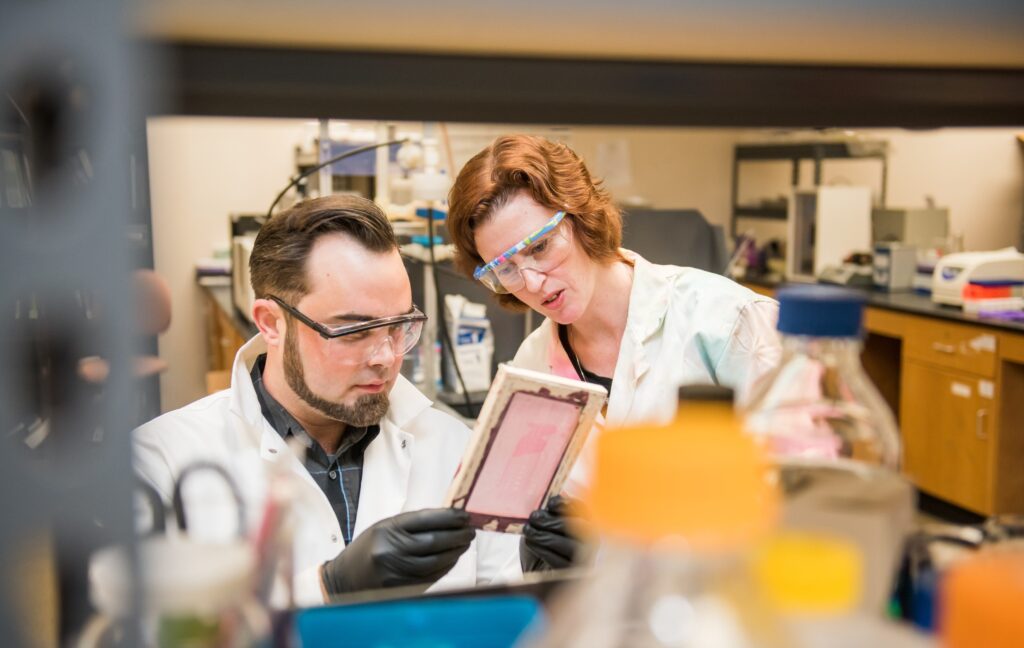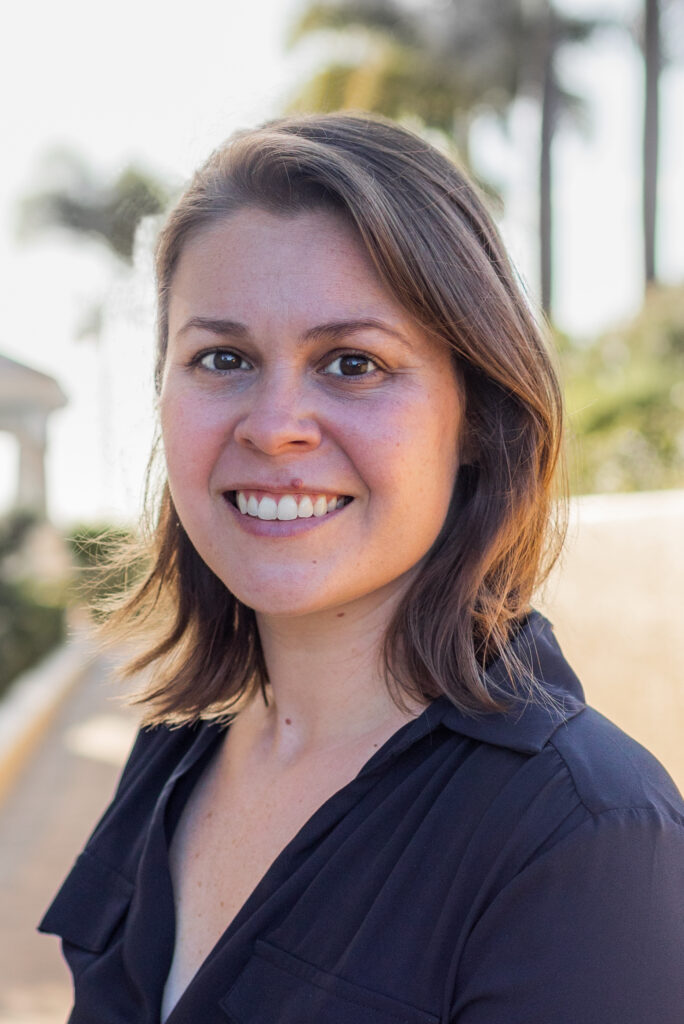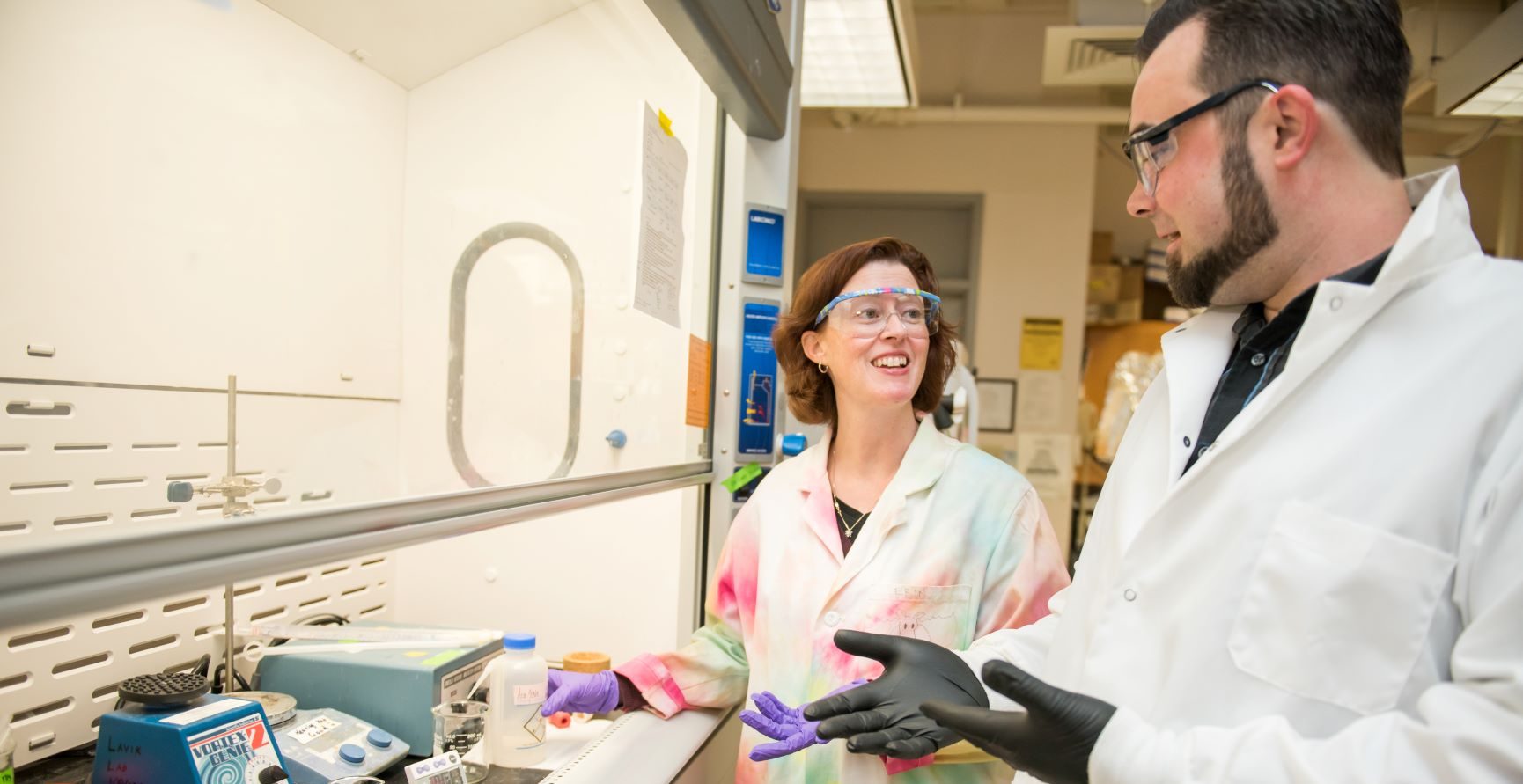Erin Lavik, professor of chemical, biochemical, and environmental engineering at UMBC, is an innovator in developing nanoparticles to stop internal bleeding. She’s also hard at work on a very different challenge: building STEM workforce development programs that are more inclusive and equitable.
Lavik and Erika Fountain, assistant professor of psychology, will serve as 2022-23 Science & Technology Policy Fellows (STPF) with the American Association for the Advancement of Science (AAAS), in the prestigious program’s 50th class.
“AAAS policy fellows have been demonstrating excellence in science policy for the past half-century—defining what it means to be a scientist and engineer in the policymaking realm,” said STPF Director Rashada Alexander.
The 300 fellows chosen for the 2022-23 class will serve in a range of government offices, working to inform actionable, science-based policies. Lavik will be based in the Advanced Manufacturing Office of the National Institute of Standards and Technology, known as Manufacturing USA. Fountain will be hosted by the American Psychological Association (APA), serving as a Congressional Fellow.
The 2022-23 fellowship class is supported by variety of bodies including the U.S. Government, AAAS, partner societies, and the Gordon and Betty Moore Foundation, with an eye on both the value of this experience for participating fellows and the impact fellows will have throughout their careers.
Inclusive high-tech workforce
“With the CHIPS Act passing, I’ll be focusing on building workforce development programs that are equitable, inclusive, diverse, and accessible,” says Lavik.
“CHIPS” stands for Creating Helpful Incentives to Produce Semiconductors—legislation that will provide nearly $53 billion to support semiconductor production in the U.S., supporting both research and high-tech jobs. The goal of CHIPS, the White House notes, is “to sustain U.S. leadership in the sciences and engineering as the engine for American innovation.”
Lavik, who is also associate dean for research and faculty development in UMBC’s College of Engineering and Information Technology (COEIT), will play an important role at NIST in shaping the programs that will generate these high-tech jobs, maximizing their benefit. At the same time, she will learn about federal policymaking and implementation first-hand.

“Dr. Lavik has worked as both a researcher and as an associate dean elevating research and advancing faculty development. This combination has given her a broad insight into product development,” says COEIT Dean Keith J Bowman. “I am certain that expertise will serve her well in supporting advancement of our nation’s manufacturing enterprises. I know from direct experience that Manufacturing USA has changed how we think about and carry out manufacturing, and Dr. Lavik’s strategic and innovative mindset is a great match for this opportunity.”
Research-based youth justice policy

Fountain leads UMBC’s interdisciplinary Youth Justice Lab, which focuses on the intersection of adolescent development and the legal system, combining psychology, law, and policy. Her research focuses on how adolescents and their families navigate the justice system, with the goal of developing evidence-based youth justice policy. She and her team explore how youth experience legal decision making, court processes, and working with attorneys.
Fountain’s APA Congressional Fellowship is specifically designed for psychologists seeking unique public policy learning experiences to prepare them for careers connecting with and impacting the federal government. She has already provided scientific testimony to Maryland legislators considering changes to policies involving youth justice—from confidentiality of records to legal protections in youth interrogation—and looks forward to working at the federal level.
“This fellowship gives scientists an opportunity to learn about the policy process and ultimately inform work being done to create and implement policies,” says Fountain. “As someone who has been conducting research on youth justice and justice policy for years, I am thrilled to be able to step into this role and work directly with policy makers to inform policies that benefit youth and their families.”

“In awarding Dr. Fountain this fellowship, APA and AAAS have recognized the high quality and impact of her scholarship and policy work to date,” says Anne E. Brodsky, professor and chair of psychology. “Through this high-level experience, she’ll gain valuable expertise that will further advance her contributions to our mission: elevating our students and surrounding communities through important and socially relevant applied scholarship.”
Tags: CAHSS, CBEE, COEIT, majoraward, Psychology, Research

